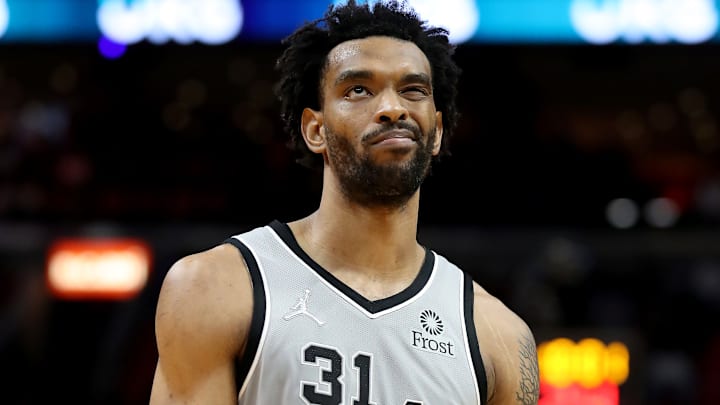Two-way contracts have only been around for a few seasons, but the San Antonio Spurs have already made good use of them thus far. They used it to sign then-undrafted player Drew Eubanks, who later became the team's backup center for a time, as well as Keita Bates-Diop, who was an undervalued player that the Spurs saw potential in. Bates-Diop was signed to a two-way contract last season but managed to make the 15-man roster, earn a role in the rotation, and contribute on both ends of the floor.
While neither players were home run signings, San Antonio was able to take advantage of the additional roster spots to find eventual contributors. That's great for the Spurs, who have a history of finding undrafted players including Gary Neal, Jonathon Simmons, and Bryn Forbes. Each of those players would go on to become key parts of playoff teams, but now the Spurs wouldn't have to tie up roster spots unless they had proven themselves first on two-way contracts.
Another advantage is that it allows for the Spurs to actually sign their second-round selections after years of mostly drafting and stashing those players. Now we're seeing players such as Joe Weiskamp, a sharpshooting small forward out of Iowa State, get a chance to join the team, continue to improve, and try to earn a spot on the Spurs roster. He didn't play all that well this season but his contract was later converted to a regular NBA deal after San Antonio made several in-season trades, giving him a temporary salary increase.
Two-way contracts give the Spurs roster flexibility
The ability to convert contracts is useful and allows players who've outperformed their deal to be rewarded while the team could potentially sign them to a cheap multi-year deal. Wieskamp probably won't be signed to a multi-year deal but will be eligible to sign another two-way contract next season, giving him another opportunity to try and earn a role with the team.
The same opportunity could be afforded to whoever San Antonio chooses with the 38th overall pick, the last of the Spurs' four selections in the 2022 NBA Draft. While they're likely to be signed to a two-way deal, they will have plenty of chances to prove themselves in the NBA G League with the Austin Spurs. The Austin Spurs have become something of a proving ground for San Antonio's first and second-round picks.
In fact, most of their recent picks, Devin Vassell excluded, spent at least some time there. Many of them benefited from the experience and picked up new skills in the process. It also gives them a chance to learn San Antonio's offense and show that they are capable of playing a role within it. The Spurs can also call up two-way players as needed, and that can come in handy when they're shorthanded. Moreover, those players can be assigned back to Austin until they're needed again, giving the team roster flexibility.
All in all, the addition of two-way contracts and the extra roster spots for those players help the Spurs, who've had plenty of success with second-round and undrafted players. Actually, several of those players went on to become important rotation players and the team could potentially find more of those players now.
Two-way contracts could play a key role in the Spurs' rebuild.
